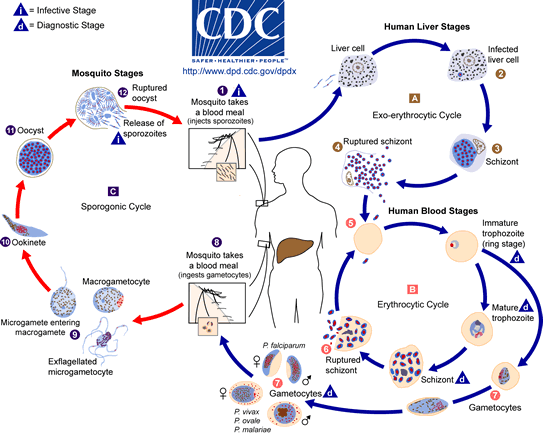QUESTION
I have never been diagnosed with malaria but returned from Turkey in 2007 (P. Vivax endemic area; Diarbykar & Mardin areas). My symptoms were consistent with malaria and I have now had 5 relapses since then, averaging one occurrence per year. I now have impaired kidney functioning and I am uncertain if this could be because of undiagnosed malaria? Would the PCR blood test at anytime be an option to conclusively rule out malaria or would blood need to be drawn during an actual relapsing event?
ANSWER
You have certainly done your research! It’s great to hear from someone who is so well informed about the risk areas they traveled too and the diagnostic options. You’re right in thinking that PCR is only appropriate during an active relapse; while the malaria parasites are dormant in the liver (called hypnozoites, in that form), they are extremely hard to detect. One option could be to investigate the possibility of taking a test to look for antibodies to the P. vivax parasite. These tests are often referred to as ELISAs (enzyme-linked immunosorbent assays) and they can sometimes be useful for testing for malaria in between relapses because the antibodies your body produces against the malaria parasite during the relapse phase can stick around in the blood for weeks, or even months or years. Therefore these tests are not very useful for people in endemic areas (who may always have these antibodies, regardless of their current infection status) but for travelers who have been exposed a limited number of times, this test may be able to say whether you have at some stage been infected with P. vivax; together with your clinical history, this will provide strong evidence to your doctor that you might need to discuss the possibility of taking primaquine, the drug which can kill the dormant hypnozoites and prevent further relapse.
